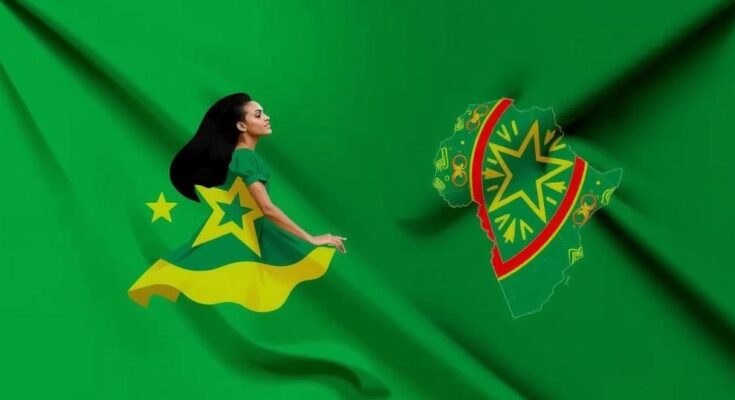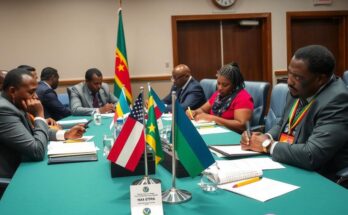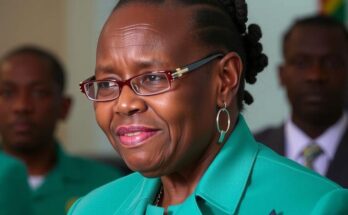Ethiopia has acknowledged the recent presidential elections in Somaliland, praising their peaceful and democratic nature. This recognition marks Ethiopia as the first nation to validate Somaliland’s electoral process, which received international observations. The ongoing political dynamics include an agreement between Somaliland and Ethiopia that raises tensions with Somalia, who claims territorial disputes with Ethiopia.
Ethiopia has officially recognized the recent presidential elections held in Somaliland, a region that has declared independence from Somalia for over thirty years. A statement from the Ethiopian Ministry of Foreign Affairs praised the people of Somaliland for conducting what it termed a “peaceful and democratic election.” This recognition marks Ethiopia as the first nation to acknowledge the validity of Somaliland’s electoral process, which was observed by international monitors. In its statement, Ethiopia commended the Somaliland National Electoral Commission (NEC) for facilitating “free and fair elections,” highlighting the significant political maturity exhibited by Somaliland. The NEC, which oversaw the electoral process that took place on November 13, also received commendations from international partners for maintaining a transparent voter registration and candidate nomination process. Incumbent President Muse Bihi Abdi from the Kulmiye party faced challenges from Abdirahman Irro of the Waddani party and Faisal Ali Warabe of UCID. The election results have yet to be finalized, with the NEC urging voters to be vigilant against misleading information regarding the electoral process. Regardless of the election results, Somaliland is still confronted by the complexities of an existing Memorandum of Understanding with Ethiopia concerning access to the sea for military and trade purposes, which has prompted accusations of territorial ambitions from Somalia. This ongoing dispute has led Somalia to reject any mediation concerning the agreement and pursue a defensive alliance with Egypt as a countermeasure against perceived Ethiopian encroachments.
Somaliland, which unilaterally declared its independence from Somalia in 1991, has been involved in a struggle for international recognition as a sovereign state. Despite operating independently with its own government structures, Somaliland has not yet garnered formal recognition from the international community. Ethiopia’s acknowledgment of Somaliland’s electoral process represents a significant diplomatic milestone, as it is the first country to do so. The population of Somaliland has generally aimed to demonstrate its capabilities in governance and administration to gain wider acceptance globally. The region’s elections have drawn attention not only for their democratic approach but also for the geopolitical implications they carry, especially concerning its relations with Somalia and Ethiopia.
Ethiopia’s recognition of Somaliland’s elections underscores a pivotal moment in the region’s political landscape. The encouragement of democratic processes in Somaliland aligns with Ethiopia’s strategic interests, yet the complexities surrounding territorial claims and international diplomacy remain ongoing challenges. As Somaliland navigates its quest for legitimacy, the continued scrutiny of its electoral integrity and relations with neighboring nations will be critical factors influencing its future.
Original Source: www.garoweonline.com




